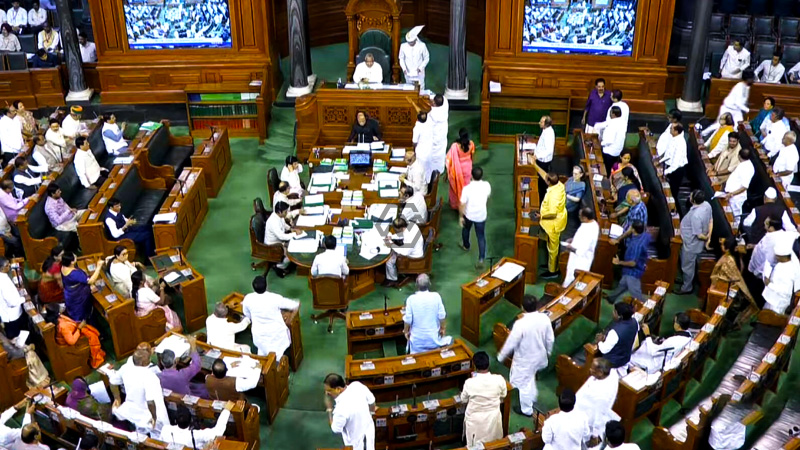As the impasse over the opposition’s insistence on PM Modi‘s speech regarding the violence in Manipur persisted, the Forest Conservation (Amendment) Bill, which grants exemptions for constructions on forestland, was passed in Lok Sabha amidst protests.
All of the changes recommended by the environment ministry were accepted when the bill was referred to a Joint Parliamentary Committee (JPC) in March.
Forest Conservation Bill
International agreements on the climate issue and Nationally Determined Contributions with three measurable goals were mentioned by Union Environment Minister Bhupender Yadav.
Due to limitations in the current law, development has halted in some places impacted by Left-wing extremism (LWE). The exclusion of forests within a 100 km radius of borders, LACs, and LOCs will aid in building vital border region roadways and strategic infrastructure for national security.
- Forest Conservation Bill passed amid protests over opposition’s Manipur violence demands.
- Union Environment Minister Yadav discusses international climate agreements, measurable goals.
- Northeast’s ecological fragile areas may suffer from a 100 km exemption.
After reviewing the legislation, the JPC approved all suggested revisions. On July 18, around 400 ecologists, biologists, and naturalists wrote to Yadav and lawmakers pleading with him not to introduce the draft legislation.
Only area designated as forest under the Indian Forest Act of 1927 or any other law is covered by the proposed legislation. The JPC report’s submissions demonstrate disagreement with the bill’s provisions.
The environment ministry maintained that exclusions were required because the current law’s reach was ambiguous, government records were murky, and connectivity was a need.
Experts noted that the northeast’s ecologically fragile areas may suffer as a result of the 100 km exemption from border areas. In Assam, Meghalaya, Tripura, and Mizoram, the Sixth Schedule allows for the autonomous government of tribal territories.



